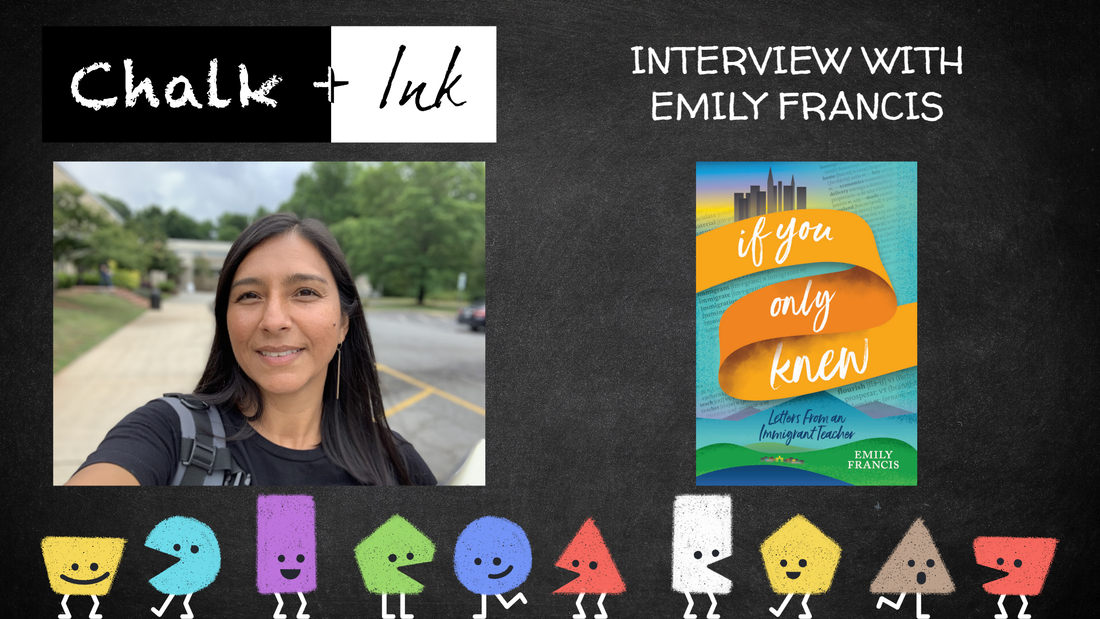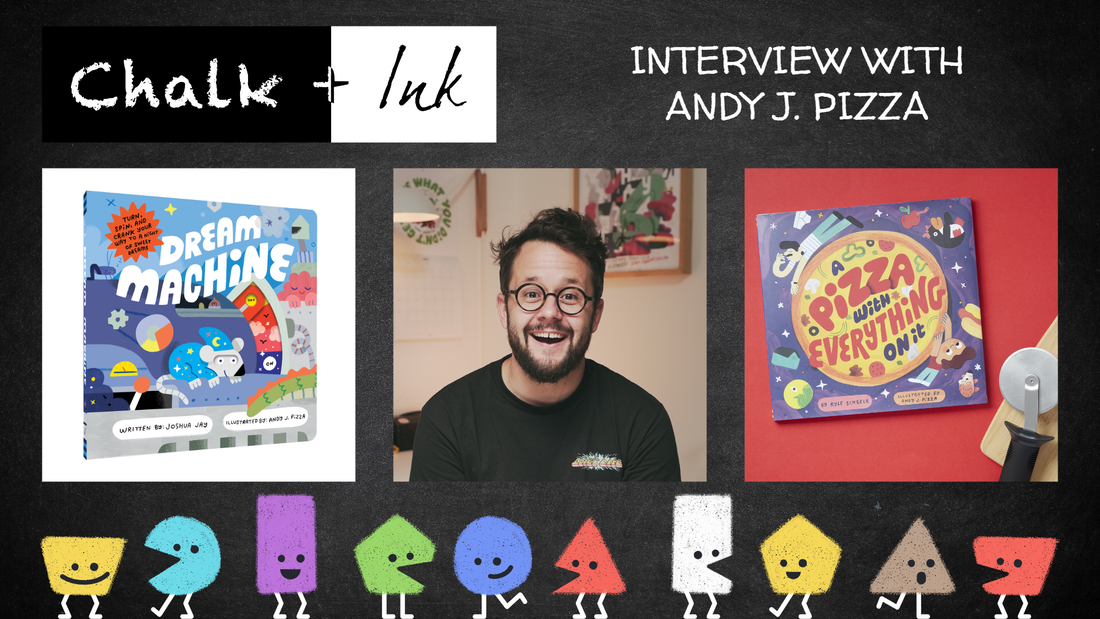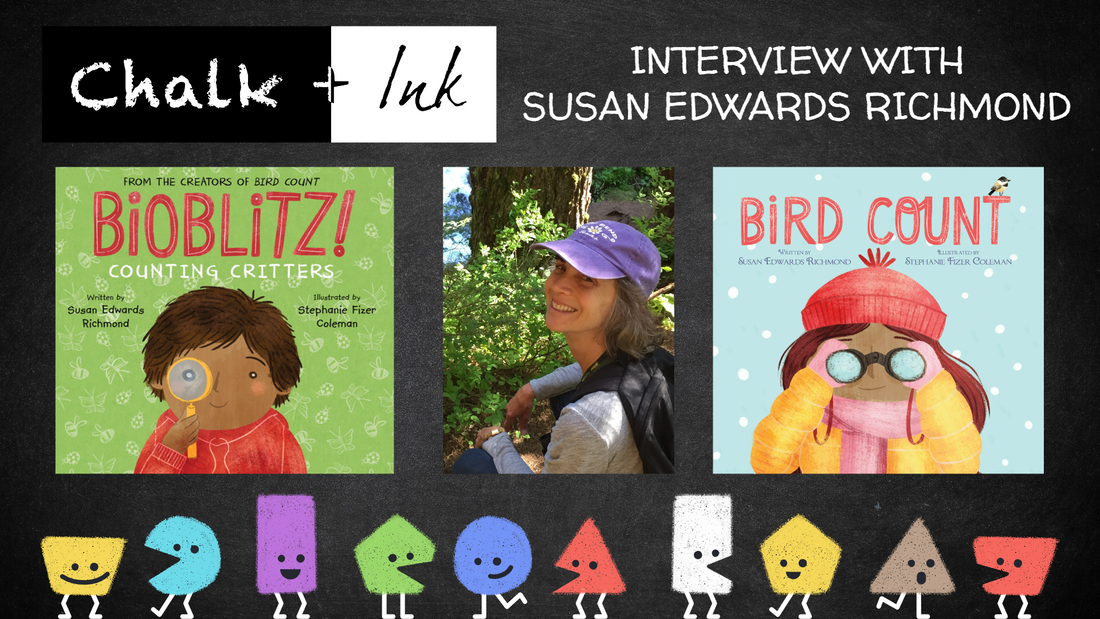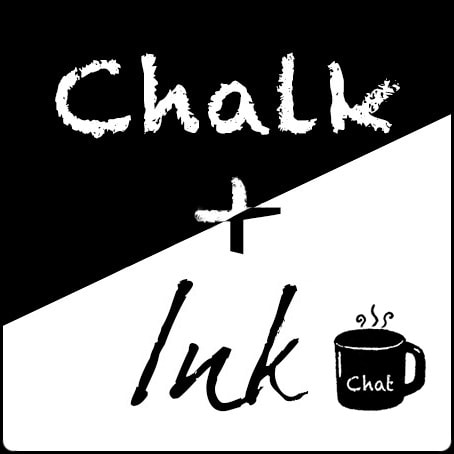|
NCTE published its Position Statement on the Role of Nonfiction Literature (K-12) and it's a must-read for all educators. One of my favorite quotes from the statement is, "Informed citizens of pluralistic societies appreciate multiple perspectives and worldviews and acknowledge the dangers of any single story." One of the stories we've been sold over and over again is that undocumented immigrants are lazy and uneducated, and that is false. But don't take my word for it. I am not and was never an undocumented immigrant. But Emily Francis was. In her stunning epistolary memoir, If You Only Knew: Letters From an Immigrant Teacher, Emily Francis describes her immigration journey, how she perseveres, despite countless obstacles, to become a teacher, and how sharing her story with her students empowers them to share their voices and stories in her classroom. On this episode, Emily talks about the necessity of transparency and honoring students' stories and their wishes. Emily cuts to the chase about the importance of transparency in the classroom. Speaking about her students she states, "I want them to see me for who I am, with all transparency." She continues on to say, "That vulnerability in the book... was necessary because it helped me heal... and it helps empower students to say, 'Hey, if Ms. Francis is sharing this part of her life, I think I can share mine, too.' " So how does Emily provide the opportunity for students to share their stories? She uses Reimagining Migration's Moving Stories Unit which teachers can use in their classroom so that all students share their family's moving story about how they or their ancestors came or were forced to come to the United States, or how their ancestors were forced to move as a result of European colonization. Not only does the unit provide teachers with a scaffold to help students share their stories, the unit also honors students wishes by providing them with statements they can incorporate into their individual writing contracts. Contracts reassure students that they will have the power to choose which parts of their stories they share, and which parts of their stories they will write for themselves. She uses the following books when launching Moving Stories: Show Way by Jacqueline Woodson The Day You Begin by Jacqueline Woodson Emmanuel's Dream by Laurie Ann Thompson Part of Emily's transparency in the classroom and as a keynote speaker is sharing her reading life. Click here to find more titles she recommends. It delighted me to see that her featured photo for her My Reading Life page included René Has Two Last Names by former podcast guest, René Colato Laínez. If you'd like to be entered to win a signed copy of Emily's book, If You Only Knew, leave a comment below. Finally, I want to give a shout out to Sarah Brannen for Chalk + Ink’s podcast art and call attention to the Robert F. Sibert Informational Book Medal. Last year at ALA, Summertime Sleepers, written by Melissa Stewart and illustrated by Sarah Brannen, won the Sibert Honor. As I write this post, the ALA awards are only ten days away and I can’t wait to see which book wins the Sibert Medal this year. Happy listening!
0 Comments
When unforgettable moments happen, they need to be celebrated. Thanks to Andy J. Pizza, Chalk + Ink exists. So, it's only fitting that for the fiftieth episode Chalk + Ink celebrates Andy and what he gives to the creative world week in and week out. We talk about the definition of creativity, what it means when art works, and tips for creating a successful podcast. Unlike most people who define creativity as something new, for Andy creativity is about sustaining humanity. We need stories to be fresh, updated, and relevant, to keep us captivated, but as creators we don't need to reinvent the wheel. For more on storytelling, check out Brian McDonald's Invisible Ink or listen to his podcast You Are a Storyteller. Andy then moves on to explaining that art only works if it moves people from one emotional state to another. He dives deep into this topic on his 391st podcast episode-"How to Move People with Your Creative Work on a Deeper Level." Definitely worth a listen, as are all of his Creative Pep Talk episodes. In order to create a successful podcast, Andy recommends creators do the following three actions: 1) Podcast Consistently for a Long Time Andy's podcast, Creative Pep Talk, picked up steam in its third year. 2) Niche Down Focus on a small group of people. Make the content for those people outstanding so that they convert people who aren't like them into listeners. 3) Speak on Other People's Podcasts All the spoils of creativity "are in locking arms with your peers." So how does Andy get everything done? He relies on his creative team, which includes his wife, Sophie Miller, and his agent, Ryan Appleton, and he makes the most out of his energy clock. For more on making the most out of one's own energy clock, read Molly Fletcher's The Energy Clock or listen to her talk about her book here. If you aren't familiar with Andy's engaging children's books, be sure to check out Dream Machine and A Pizza with Everything on It. Before our next episode, be sure to read Emily Francis’s If You Only Knew: Letters From an Immigrant Teacher. It’s an epistolary memoir that shines a light on all that we have to be grateful for and on the power of educators to encourage or discourage their students. Don't have time to read it? Check out this video. One of my intentions for 2023 is to become more vulnerable, and as Andy said, fold more of myself into my art. So, I’ve been thinking about how I could do that on Chalk + Ink. That’s why in addition to assigning the homework for listeners at the end of each episode, I’m going to share with you the homework I’m giving myself. Then at the beginning of each episode, I’ll let you know the progress I made or didn’t make on my own assignment. I've already ordered The Energy Clock, and I plan on listening to one new education and/or writing podcast each month of this year. Then, if the podcast seems like a good fit, I'll reach out to the creator to see if they're interested in a swap. Have recommendations for me? Leave them in the comments below. Finally, I want to give a shout out to Sarah Brannen for Chalk + Ink’s podcast art. If you haven’t read Sarah’s book, Uncle Bobby’s Wedding, check it out. It’s on the ALA 2021 Rainbow List and Bank Street's Best Children's Books 2021. Happy listening! In this episode, Susan Edwards Richmond talks about the importance of getting outside, cultivating a gratitude mindset, and how it take a community to create a picture book. Pretty quickly listeners will catch on that Susan Edwards Richmond lives to be outside, whether by herself in the early morning birding or with a classroom full of preschoolers. It's nature that's inspired her to write her books Bird Count, Bioblitz, and Science Play. In addition to getting outside, Susan works hard to cultivate a gratitude mindset in her own life as well as in her classroom. She talks about how using Traci Sorell's We Are Grateful is a wonderful way to begin the discussion of why it's important to be grateful year round, not just in November. Finally, Susan talks about how although it may sound trite, it takes a community to create a picture book. Not only does she talk about collaborating with an editorial team, she talks about the importance of listening to professional critiques whether those come from critique group members, editors, agents, or other publishing professionals. If people take the time to critique your manuscript, it's because they see potential in it. So, listen. As we talked, we discussed the following titles: Braiding Sweetgrass, Miss Rumphius, Finding a Dove for Gramps, Octopuses Have Zero Bones, and Susan's forthcoming Night Owl, Night. Susan thinks all early elementary classrooms should have these books: Be a Tree by Maria Gianferrari Susan loves how this book teaches readers all about trees from the tippy-top to the roots, takes you around the world, and teaches people how to be communal like trees. Tree Hole Homes: Daytime Dens and Nighttime Nooks by Melissa Stewart Susan loves the concept and the art, which the illustrator created on actual pieces of wood to incorporate wood's natural grain. Not only does Susan explain that this book is a must-have because it teaches about habitats and animal facts, she gives lists lots of fun classroom activities to accompany this title. Same, Same but Different by Jenny-Sue Kostecki Shaw Two pen pals, one from India and one from United States both have commonalities but they write about the unique aspects of their lives like taking a public bus to school versus riding in a school bus. Susan's students really identify with this book. After listening to Susan talk, I ordered it from one of my favorite local bookstores, The Silver Unicorn. For upper elementary classrooms, Susan recommended Leslie Bulion's Serengetti: Plains of Grass. It's a spectacular book with beautiful, lyrical, primary text and includes informative secondary text with facts about animal habitats and interactions. If you'd like to win one of Susan's signed picture books or a free picture book critique, leave a comment below. Want to support the podcast? Leave a review wherever you listen to your podcasts, boost this episode on your favorite social media platform or go to buymeacoffee/chalkandink and with a simple click you can spread Chalk + Ink cheer. As always, many thanks to Sarah Brannen for Chalk + Ink’s podcast art. If you haven’t read Sarah’s book, Uncle Bobby’s Wedding, check it out. It’s on the ALA 2021 Rainbow List and Bank Street's Best Children's Books 2021. Happy listening! |
Chalk + Ink ChatsWant to hang out with teachers who write and writers who teach? Fill this form to join our Archives
October 2023
Categories |



